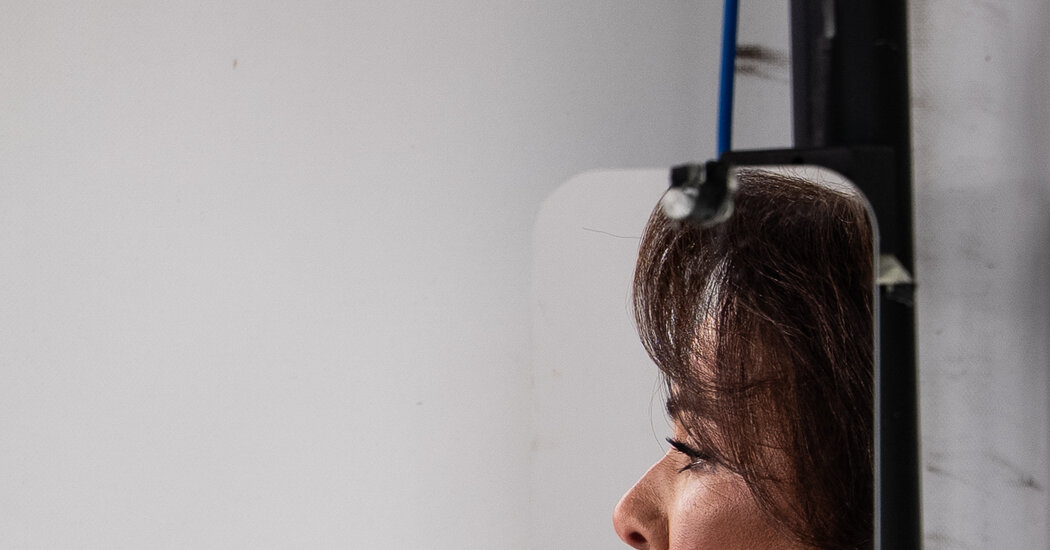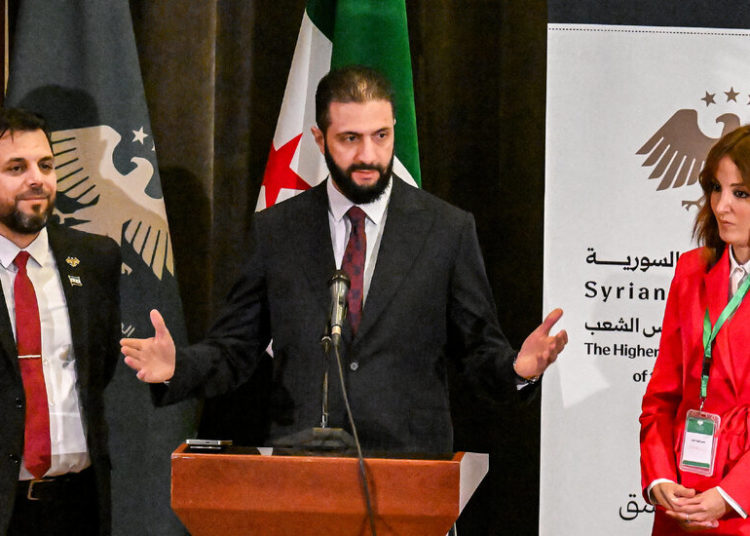Under the vaulted arches of the National Union Building, a group of federal prosecutors gathered recently for what has become an all-too-common ritual: saying goodbye to colleagues.
The speeches that night reflected the despondent mood inside the U.S. attorney’s office in Washington, as the lawyers who were quitting urged those staying behind to forge ahead in uncertain times. Do what’s right, they said. Speak truth to power. Uphold the rule of law.
But as the hour grew later — and the bar tab bigger — the politics that have buffeted the office for months suddenly intruded on the evening, people who were there recounted later. In a quiet corner, away from the charcuterie and veggie dip, Jonathan Hornok, a top aide to Jeanine Pirro, the Trump appointee picked to run the office, was firing Jon Hooks, a senior prosecutor who had worked there for nearly 20 years.
That a respected supervisor with a long career could be stripped of his job in the middle of a farewell party for his colleagues captured something of the Darwinian tumult that has wracked the prosecutors’ office since President Trump returned to the White House and set about remaking the Justice Department in his image.
Federal prosecutors’ offices in New York, California and Virginia — to name just a few — have felt the effects of Mr. Trump’s desire to root out those he believes have been disloyal and to wield the criminal justice system against his enemies. But nowhere, perhaps, has the impact been as palpable as the U.S. attorney’s office in Washington, which is deeply enmeshed in the workings of the government and has long attracted Mr. Trump’s vengeance for having filed criminal cases against him and his allies.
The office is in crisis, distrustful of its leadership and demoralized by waves of dismissals, demotions and resignations that have slashed its head count by as much as a third since Mr. Trump returned to the White House, according to more than a dozen current and former employees, most of whom spoke on the condition of anonymity to describe sensitive issues.
Just last week, two prosecutors were placed on leave hours after seeking a stiff sentence for a pro-Trump rioter who was pardoned for his role in the events of Jan. 6, 2021, and who later showed up armed near the house of former President Barack Obama. In a bizarre move, Mr. Hornok personally filed new sentencing papers scrubbed of any mention of Jan. 6 or Mr. Trump.
The departures have fallen particularly hard on the office’s fraud, public corruption and civil rights unit, which has lost nearly half of its prosecutors as well as Mr. Hooks, its former chief, and three of its former supervisors. That has damaged the office’s ability to make the big-ticket white-collar cases it has long been known for.
The loss of talent has also affected the office’s other core mission — protecting public safety — which Mr. Trump and Ms. Pirro have both made a priority. The president’s decision to send the National Guard and federal agents onto the streets of Washington has led to a rush of cases, and while prosecutors have helped to drive crime down, they have also gotten significant pushback from juries, grand juries and judges.
At the same time, those familiar with the office said, Ms. Pirro, a longtime Trump supporter, has begun to quietly accelerate a list of what are known in the office as special projects touching on subjects that have piqued the president. Those initiatives, including investigations into people and issues reviled by Mr. Trump, have heated up after Lindsey Halligan, the Trump-appointed U.S. attorney in the Eastern District of Virginia, indicted two of the president’s foes.
The intense politicization of the office has dismayed former prosecutors like Gregory Rosen, who worked there for a decade, rising to oversee the Jan. 6 investigation before quitting earlier this year.
“The growing influence of political considerations has disrupted what was once a remarkably cohesive institution,” Mr. Rosen said, “and it’s the career people who now bear the brunt of that.”
Abigail Jackson, a White House spokeswoman, praised Ms. Pirro’s work, saying she had returned to public service to “make America safe again.”
“In a short period of time, she has turned a broken system on its head and shown that the Trump administration will hold criminals accountable,” Ms. Jackson said.
A Wave of Firings
When current and former prosecutors talk about the office these days, the same few words are used to describe the mood: fearful, battered, beleaguered, exhausted.
That is in large part because the office has been on the front lines of the legal battles surrounding Mr. Trump since the end of his first term. The turmoils of today rest on scars from cases as far back as five years ago.
After the office convicted Roger J. Stone Jr., Mr. Trump’s longtime adviser, of lying to and obstructing Congress, senior Justice Department officials recommended a much lighter sentence than the one rank-and-file prosecutors had suggested, prompting all four to quit the case in protest.
Prosecutors also obtained a guilty plea from another Trump aide, Michael T. Flynn, the former national security adviser. But then the department dropped the case, effectively erasing Mr. Flynn’s admissions to lying to the F.B.I. about talks with a Russian diplomat in late 2016.
Months later, the office found itself at the center of an even more consuming Trump-related maelstrom: the investigation of the Capitol attack. Over the next four years, prosecutors brought charges against nearly 1,600 rioters, winning the vast majority of the cases but encountering a farrago of conspiracy theories from the defendants and Mr. Trump himself.
After Mr. Trump was elected to a second term, one of his first acts was to issue a sweeping grant of clemency to every charged rioter — a move that landed inside the office like a gut punch. He quickly dealt a second blow, installing Ed Martin, a loyalist who had worked for years on behalf of the rioters, to run the office as interim U.S. attorney.
Within days of Mr. Martin’s arrival, the firing and reshuffling began. They have not stopped. .
Even as Mr. Martin presided over retributive personnel moves, he also started sending menacing letters threatening an array of Trump opponents with investigation. In his second month, Denise Cheung, the chief of the office’s criminal division, quit after Mr. Martin opened an inquiry into grants issued by the Environmental Protection Agency during the Biden administration.
Ms. Cheung’s resignation not only drew attention to Mr. Martin’s willingness to pursue political cases, but also deepened the office’s leadership vacuum. To replace Ms. Cheung, Mr. Martin brought in Mr. Hornok, a narcotics prosecutor from Texas who had little knowledge of the office’s inner workings.
Still, Mr. Martin put him in charge of a new anti-crime program intended to crack down on gun violence in Washington. As Mr. Martin wrote in an email, prosecutors would begin pursuing every firearms case referred to them and seek pretrial detention against every defendant.
The program would eventually contribute to the eroding relations between the prosecutors’ office and the courts — and with the community. But Mr. Martin was adamant it was needed.
“We will flood the federal district court with cases to make our city safe,” he wrote.
A Focus on Street Crime
Of the 93 U.S. attorneys’ offices from New York to the Northern Mariana Islands, the one in Washington is unique. It is the only one that handles both federal and local crimes.
Most of the office’s 300 or so prosecutors are assigned to superior court, where local crimes are tried, and office veterans pride themselves on having been through the “rotation” — the process of sorting through police reports to determine which arrests to prosecute.
But even though Mr. Martin intended to beef up prosecutions of street crimes, he was gone within weeks of his program starting. In May, after his nomination to run the office on a permanent basis failed, Mr. Trump replaced him with Ms. Pirro, a former district attorney in Westchester County, N.Y., who made a post-prosecutorial career as a brash-talking Fox News host.
After the five chaotic months under Mr. Martin, many in the prosecutors’ office welcomed Ms. Pirro. Though she was known to be an ardent Trump supporter and a scene-chewing television personality, she at least had experience as a prosecutor.
In her first month on the job, Ms. Pirro earned the respect of her subordinates with her tough yet measured appearance at a news conference announcing the fatal shooting of two Israeli Embassy workers outside the Capital Jewish Museum.
Her words played well with the office’s hard-charging, law-and-order types, though some saw in her remarks a glimmer of her performative past. A witticism began to make the rounds. It was obvious, people in the office said, that Ms. Pirro cared deeply about crime victims. It was also obvious that she cared deeply about people knowing she cared deeply about crime victims.
Tensions started building in August as the U.S. attorney’s office was thrust into a leading role in Mr. Trump’s reinvigorated plan to quell local crime with troops and federal agents. Ms. Pirro and Mr. Hornok, who had never been through the “rotation,” tried something new, current and former prosecutors said: They ordered lawyers to be on duty more or less around the clock, in position to receive calls from agents or police officers in the middle of the night.
Already facing a staff shortage, Ms. Pirro brought in 20 military lawyers to work on cases related to the surge. Even so, much of the work found its way to prosecutors who had worked on fraud or national security cases and were unfamiliar with street crime.
Still, Ms. Pirro made clear she wanted an aggressive approach to local crime, instructing prosecutors to bring as many cases as possible not in superior court but in federal court, where penalties are generally stiffer, according to people familiar with the moves.
Some prosecutors said that, in an effort to get charges into court quickly, they were ordered to forgo the traditional process of evaluating cases for possible search or seizure violations. Any such problems, they said, could be dealt with later, after the cases had been put in front of judges.
Timothy Lauer, Ms. Pirro’s spokesman, pointed to her successes, including having driven murders and carjackings down nearly 70 percent since the surge began over the summer.
“This office needs warriors, not worriers,” Mr. Lauer said. “Being a prosecutor isn’t a popularity contest — it’s about prosecuting crime and protecting victims.”
Still, the consequences of the surge have begun to show up in the courtroom.
In a highly unusual development, grand juries in late August started to reject requests to return indictments, suggesting that the ordinary citizens on the panels believed the cases were problematic. Within a month, it happened nearly a dozen times, including in the case of Sean C. Dunn, who became a local folk hero of sorts after hurling a submarine sandwich at a federal agent.
In another case, prosecutors failed three times to obtain an indictment against Sidney Lori Reid, who was accused of assaulting an agent while protesting an immigration arrest. Even after they dropped her felony charge to a misdemeanor, they still failed to make the case. After a series of prosecutorial errors, Ms. Reid was acquitted at trial.
Judges have taken notice.
Especially vocal in his criticism has been Magistrate Judge Zia M. Faruqui, who once worked as a prosecutor in the U.S. attorney’s office. In recent orders, Judge Faruqui has complained about misuse of grand juries, defendants languishing in jail and the number of cases his former colleagues have dismissed.
In August and September alone, he determined, prosecutors filed 95 cases by criminal complaint, requesting that 20 of them be dismissed. That was the same number of dismissals requested out of the more than 4,000 cases charged by complaint between 2014 to 2024.
This “roller coaster,” as Judge Faruqui called it, has made some prosecutors in the office anxious that they might soon be asked to do something unethical. Some have gone so far as to strip their personal offices down to bare bones, preparing for the day when they might have to leave at a moment’s notice.
Doing Trump’s Bidding
From the moment Ms. Pirro arrived, some of those under her believed she was intent on ascending to a more important post. During Mr. Trump’s first term, for instance, she had lobbied unsuccessfully to be deputy attorney general.
In the Trump-era Justice Department, where loyalty is prized above all else, one clear path to promotion lies in doing the president’s bidding. In September, Ms. Halligan went from being an obscure White House aide with no prosecutorial experience to the key Virginia U.S. attorney post.
Within three weeks, she had rejected the advice of career staff members and secured indictments against two of Mr. Trump’s adversaries: James B. Comey, the former F.B.I. director, and Letitia James, the New York attorney general.
Current and former prosecutors in Washington said that Ms. Pirro had put pressure on her staff to bring similar cases, creating a group to work on the so-called special projects. Those, they said, include investigations into the Metropolitan Police Department’s use of crime statistics and into the financier George Soros, who has long been a boogeyman on the right for his support of liberal causes. There was also interest, the prosecutors said, in re-investigating aspects of the Jan. 6 riot and in scrutinizing the lawyer Norm Eisen, who has repeatedly challenged Mr. Trump’s efforts to expand his powers.
It remains unclear where those inquiries stand, and if they will eventually result in criminal charges.
But Ms. Pirro’s desire to see them through was serious enough that it led to pushback from Mr. Hooks, the former chief of the fraud and public corruption unit, according to several colleagues. Mr. Hooks was uncomfortable with moving forward on some of the cases and told Ms. Pirro weeks ago that he planned to resign.
Before he could quit, however, he was fired — at the going-away party for his colleagues.
Alan Feuer covers extremism and political violence for The Times, focusing on the criminal cases involving the Jan. 6 attack on the Capitol and against former President Donald J. Trump.
The post Trump’s Retribution Campaign Leaves D.C. Prosecutor’s Office in Crisis appeared first on New York Times.




